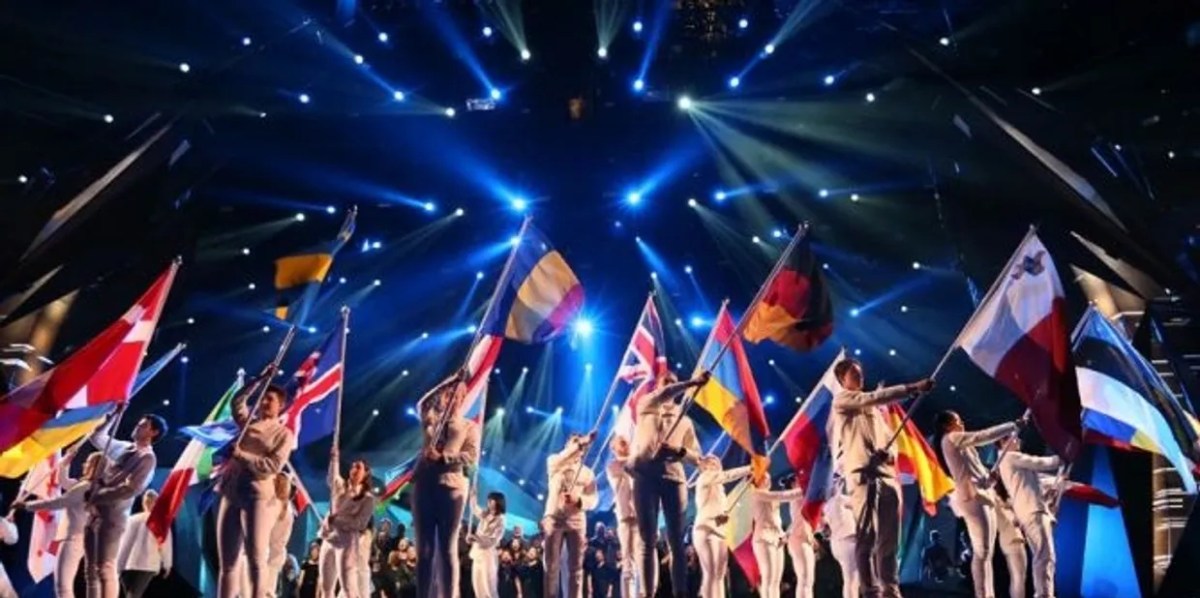Eurovision Song Contest Voting Explained

Table of Contents
Understanding the Two Voting Systems
The Eurovision Song Contest uses a dual voting system, combining the opinions of professional juries and the public's televotes to ensure a balanced and fair result. This system aims to mitigate potential biases inherent in either system alone.
The Jury Vote
Each participating country appoints a professional jury of five music industry experts. These jurors are tasked with assessing the performances based on criteria such as vocal ability, song composition, stage performance, and overall artistic merit.
- Number of Jurors: Five jurors per country are selected.
- Selection Process: Jurors are chosen carefully to avoid conflicts of interest; they are typically established musicians, composers, or music journalists with proven expertise. Their identities are kept confidential until after the voting process.
- Scoring: Each juror awards points to their top ten favorite acts, allocating 12 points to their favorite, 10 to their second favorite, and so on, down to 1 point for their tenth favorite. These scores are then collated to form the overall jury score for that country.
- Importance of Juries: The jury vote acts as a counterbalance to the sometimes unpredictable nature of televoting, which can be influenced by factors beyond the artistic merit of the performances. The jury's professional assessment adds a layer of objective evaluation to the process.
The Televote
The televote allows the public in each participating country to vote for their favorite acts. Voting is typically carried out via telephone, SMS text messages, or dedicated Eurovision apps.
- Voting Period: A specific timeframe is allocated for televoting, usually after all performances are completed.
- Rules and Regulations: Rules are strictly enforced to prevent fraud and ensure fairness. These often include limits on the number of votes allowed per person and per phone number.
- Tallying and Verification: Sophisticated security measures and verification processes are in place to ensure the integrity of the televoting results. These measures include independent auditing of votes.
- Impact on Results: The televote carries significant weight, often mirroring public opinion and contributing significantly to the final standings. It's not unusual to see the televote and jury vote significantly differing in their rankings.
The Points Allocation Process
The points from both the jury and televote are then tallied separately for each participating country before being combined to determine the final results.
National Points Breakdown
Each country awards points to the top ten acts from other participating nations. The points allocation follows a standard pattern:
- 12 points to their favorite
- 10 points to their second favorite
- 8, 7, 6, 5, 4, 3, 2, and 1 points to their remaining eight favorite acts
Example: If France is voting, they will award 12 points to their favorite act, 10 points to their second favorite, and so on.
- There are no minimum score requirements for a country to receive points.
- The coveted "douze points" (12 points) hold symbolic significance, representing a country's top choice.
Announcing the Results
The announcement of the results is a dramatic highlight of the Eurovision Song Contest. The spokespersons for each country announce their jury and televote scores sequentially, building suspense and anticipation.
- The points reveal adds to the dramatic experience, sometimes showcasing surprising twists and significant changes in the overall rankings.
- The combined jury and televote scores ultimately determine the final placing of each participating act.
History and Evolution of Eurovision Voting
The Eurovision Song Contest voting system has undergone several revisions throughout its history.
Past Voting Systems
Early Eurovision voting systems relied solely on national juries, leading to accusations of bias and a lack of public engagement. The introduction of televoting significantly increased viewer participation and engagement.
- Significant reforms have taken place over the years, mostly to improve fairness and transparency. These include introducing stricter rules to combat voting irregularities.
- The current system, combining jury and televote, is seen as an improvement over previous iterations, offering a balance between expert opinion and public enthusiasm.
Addressing Voting Irregularities
The Eurovision Song Contest organizers take measures to ensure the fairness and transparency of the voting process.
- Safeguards are implemented to detect and prevent potential fraud and manipulation, including sophisticated software for detecting unusual voting patterns.
- Votes are rigorously checked for validity, and any evidence of fraudulent activity leads to disqualification or sanctions.
Frequently Asked Questions (FAQs) about Eurovision Voting
- Can a country vote for itself? No, each country's jury and televote cannot award points to their own entry.
- What happens in case of a tie? Tie-break rules are in place, often prioritizing the act with a higher televote score.
- How are the points weighted? The jury and televote scores are usually given equal weighting, meaning each contributes 50% to the final score.
- Are there any rules against specific voting patterns? Yes, irregularities and patterns suggestive of coordinated voting are carefully monitored and investigated.
Conclusion
The Eurovision Song Contest voting system is a fascinating blend of professional judgment and public opinion. Understanding the roles of the jury and televote, the points allocation, and the historical context of the voting process adds another layer of enjoyment to the contest. The combination of jury and televoting creates a dynamic and engaging competition, ensuring a fair and representative outcome. Now that you understand the intricacies of Eurovision Song Contest voting, you're ready to appreciate the results even more! Dive deeper into the contest by researching past winners and exploring the history of Eurovision voting. Share this guide with other Eurovision fans to spread the knowledge of Eurovision voting systems!

Featured Posts
-
 Understanding The Crucial Role Of Middle Managers In Business And Employee Well Being
May 19, 2025
Understanding The Crucial Role Of Middle Managers In Business And Employee Well Being
May 19, 2025 -
 Eu Restrictions Fueling European Emigration
May 19, 2025
Eu Restrictions Fueling European Emigration
May 19, 2025 -
 Palm Springs Bombing Investigating The Suspect Guy Bartkus
May 19, 2025
Palm Springs Bombing Investigating The Suspect Guy Bartkus
May 19, 2025 -
 Apple Crop Losses Rosy Apple Aphid Infestation Impacts Harvest
May 19, 2025
Apple Crop Losses Rosy Apple Aphid Infestation Impacts Harvest
May 19, 2025 -
 Amber Alert In Dalfsen Leads To Arrest Of Biological Parents
May 19, 2025
Amber Alert In Dalfsen Leads To Arrest Of Biological Parents
May 19, 2025
